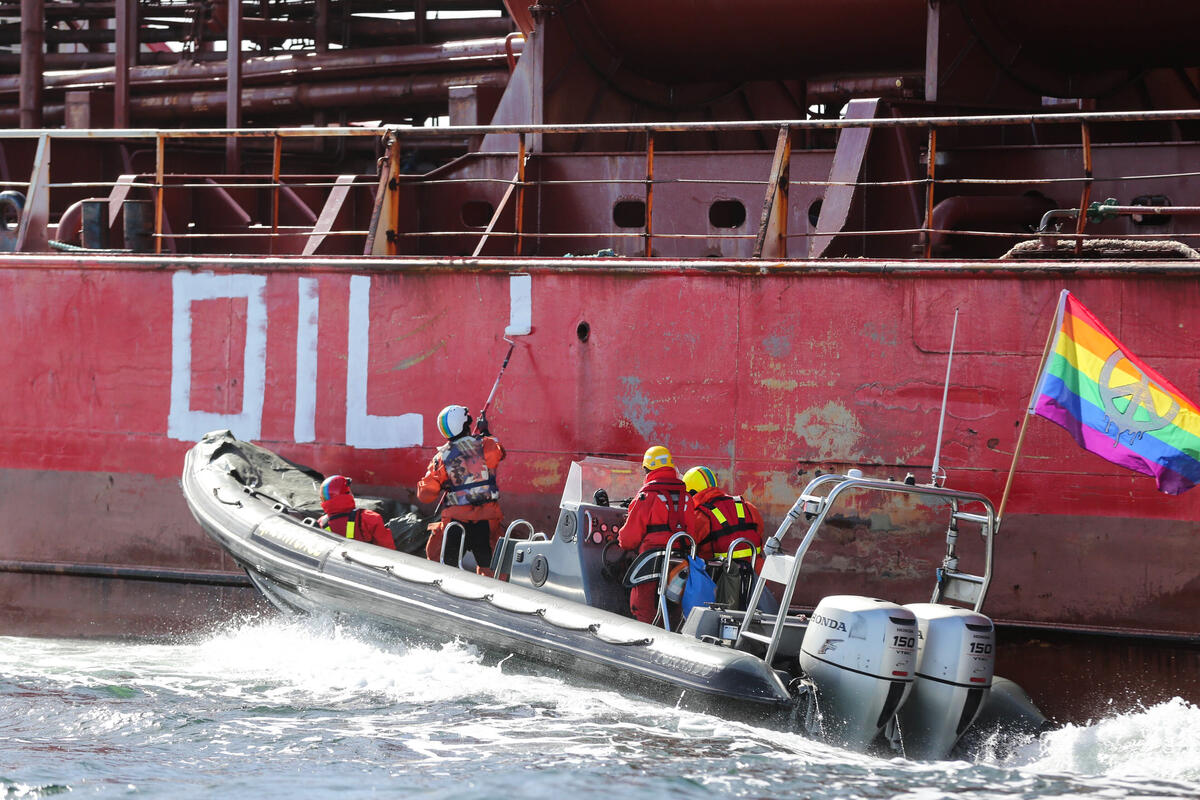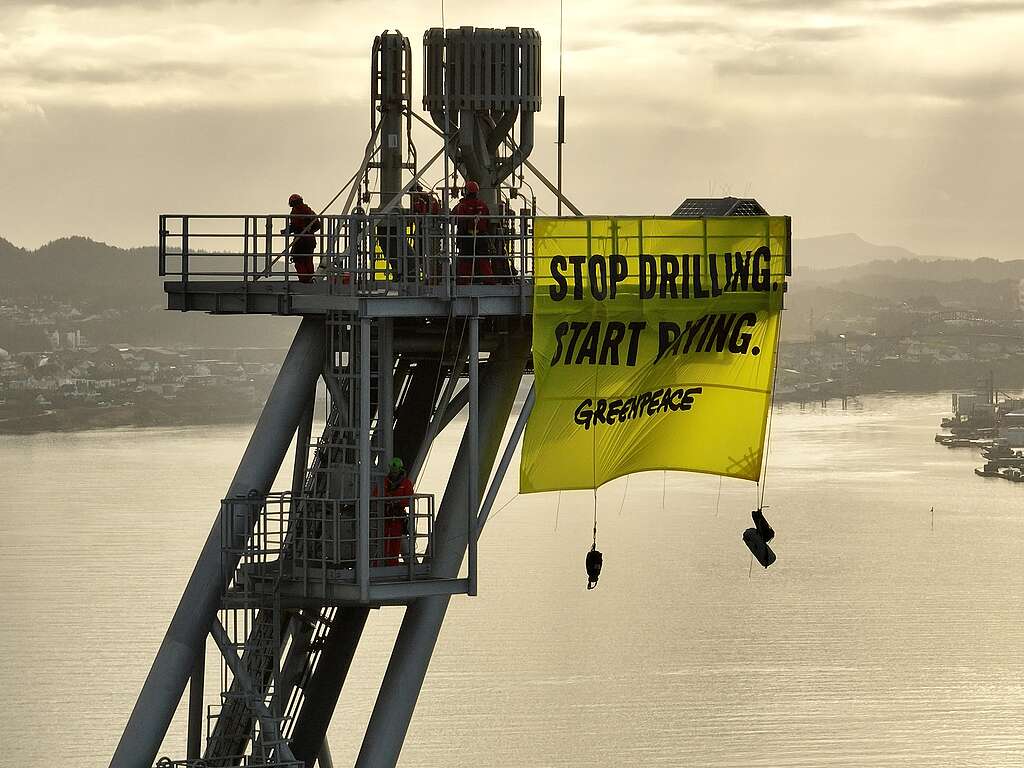Recently, I joined a protest – in the open sea, off the Swedish island of Gotland. With the war in Ukraine, the war in Gaza, increased military spending across the board, and world leaders increasingly talking about the need for defence and arms… it's easy to feel very small and also a bit afraid.
Living in privileged Denmark, it is, of course, still far away. One thing isn't, though: Every day up to five Russian oil tankers pass through Danish waters. Despite sanctions and a price cap, Russia is still earning billions on its oil exports. The industry has just moved more into the shadows.

What is the Russian oil shadow fleet?
The Russian so-called shadow fleet consists of second hand decrepit oil tankers transporting Russian oil to world markets. This fleet emerged in response to the international sanctions imposed on Russia following the invasion of Ukraine. In an effort from Western countries to maintain Russia's oil flowing to the global market while keeping Putin's earnings from the export low, the shadow fleet grew at a rapid pace.
The rusty oil tankers are often worn out and old, missing inspections, have dubious insurance if any at all, obscure ownership and are registered in countries with lax regulations. The Russian shadow fleet is a severe threat to our treasured seas and coastlines in Denmark. A shipping expert calls it "an accident waiting to happen".
At the same time, it's a clear sign of the broken energy system. The global society's dependence on oil is the reason behind the vague sanctions which paved the way for the rising of this shadow fleet. And, the shadow fleet is also fuelling Russia's war on Ukraine.
Protest in open sea against Russian oil shadow fleet
Swedish media revealed in early April that the fleet was being refuelled just off the Swedish island of Gotland. The Zircone is a 125 metre long "bunker vessel" operating as a floating gas station that for several months has been providing the Russian shadow fleet with fuel and thereby enabling the export of crude oil to the global market.
That's where Greenpeace Nordic activists went. In two inflatables, bringing a number of peace flags and a few buckets of white paint, we tracked the vessel and sent a message "OIL IS WAR – PEOPLE WANT PEACE" is now displayed in bold letters on the side of the vessel.
We call on the Swedish government to stop allowing this floating gas station enabling the Russian shadow fleet. That would make it harder for the fleet to carry out their mission to profit off fossil fuels.
The Danish government has an opportunity to act, and should do so. It ought to stop allowing these accidents-waiting-to-happen to pass through the Danish straits many times, every single day.
Can one action make a difference?
Will this action end the war in Ukraine and end the oil addiction? Probably not. Will it be the end of this problem with rusty, dodgy tankers passing Denmark in numbers every day? Not immediately. But by drawing attention to an issue that would otherwise remain hidden from the public eye, we move one step forward to addressing it. We tell the authorities concerned that we do not want this, and it creates the awareness needed to bring people together and increase pressure on governments to work for peace.
We the people, want peace! A just transition to safe, green energy for all, powered by sun, wind and water, is becoming even more crucial in this volatile world. When major economies no longer depend on fossil fuel energy, they will also stop fuelling war.
Birgitte Lesanner is the Greenpeace Nordic Deputy Programme Director for Engagement & Actions based in Copenhagen, Denmark.
Call on leaders to stop all new fossil fuel developments, to commit to a rapid and fair phase out of fossil fuels, and to make polluters pay for their destruction and harm caused.

 (@greenpeace)
(@greenpeace)





